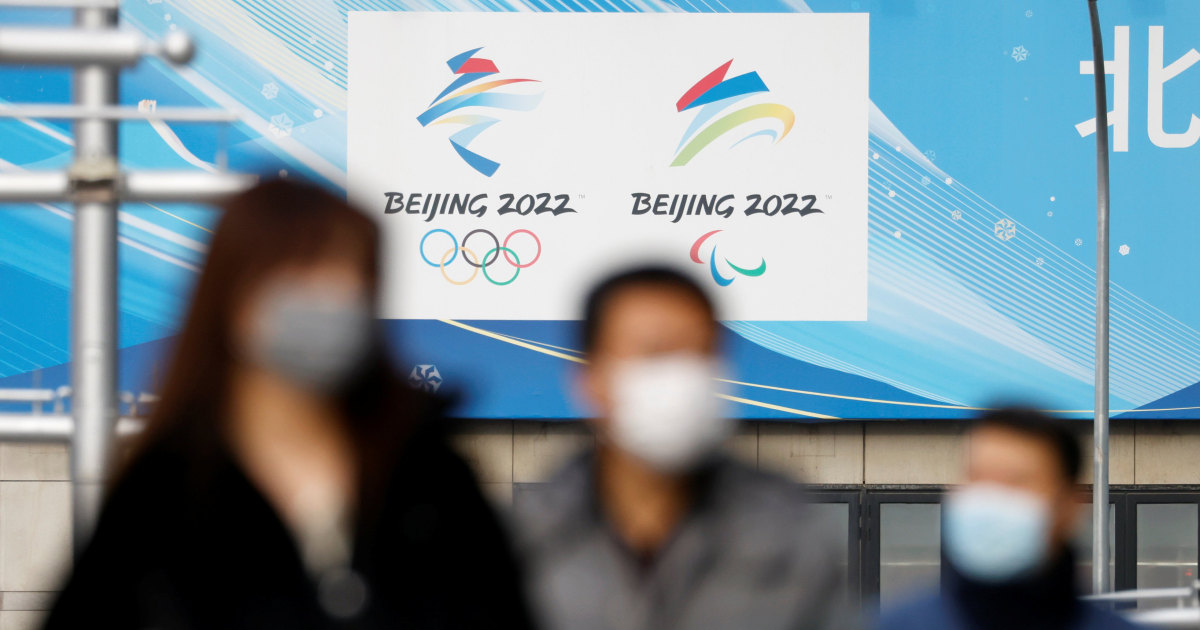
WASHINGTON — For months, Democrats, Republicans and human rights activists have pushed President Joe Biden to use February's Olympics in Beijing as a platform to rebuke China, with critics and allies urging him to prohibit American athletes from participating.
Instead, Biden chose to ban government officials but not athletes from attending the Winter Olympics, and the White House is framing that measure as an effort to demonstrate his disapproval of Beijing's campaign against Uyghurs, its violent crackdown on dissent in Hong Kong and its threat to take over Taiwan.
As its influence on the world stage grows, China has loomed increasingly large in the U.S. political arena. Voters see China through the prism of economic competition for wages and offshoring of jobs, and candidates are vying to tap into the part of the American psyche that sees China as a threat to the national goal of maintaining U.S. hegemonic power.
Biden's effort is still being criticized as a half-measure, from both sides of the partisan divide, illustrating the challenge he faces at home as he tries to calibrate effective responses to China's rise as a global power. White House officials describe his new policy as "straightforward," even though it took a while to arrive at it.
"It should not be a surprise that we would not go," a senior administration official said, speaking on the condition of anonymity because he was not authorized to publicly discuss the president's deliberations. "But we also wanted to take the time to consult with our allies and partners so they were aware of our thinking and decision."
Australian Prime Minister Scott Morrison said Wednesday that officials in his government would also refrain from attending the Beijing Games, citing human rights concerns among other issues. Other U.S. allies haven't rushed to join the diplomatic boycott, but many lawmakers are applauding Biden's decision.
"It's the right move to make to show that we will not go to Beijing and lend our credibility to their government, or to the Games that they're producing,” Sen. Mitt Romney, R-Utah, who supervised the 2002 Winter Olympics in Salt Lake City, said in an interview. “At the same time, I certainly understand people thinking that we should not send athletes either. We tried that back in the Jimmy Carter years; it didn't have much impact, except on the athletes.”
But Biden is also facing criticism from a bipartisan group of lawmakers for not taking a tougher tack at a time when China is brutalizing its own people and threatening to expand its footprint.
Sen. Rick Scott, R-Fla., for example, said Biden should have pressed for the Winter Olympics to be taken out of China altogether.
“I think it ought to be moved, and that's what he should have been doing,” Scott said.
Sen. Tom Cotton, R-Ark., widely regarded as a future GOP presidential candidate, said the U.S. "should fully boycott the Genocide Games."
And Rep. Tim Ryan, D-Ohio, who is running for the Senate, criticized Biden on Monday.
"I’m glad to see the Biden Administration take steps to hold China accountable, but this diplomatic boycott does not go far enough. China has demonstrated again and again that they do not deserve the honor associated with hosting the Olympics, and the Games should be hosted elsewhere," he said in a statement.
Ryan had previously called on the International Olympic Committee to withdraw the Games from China unless Beijing cooperated with a World Health Organization probe into the origins of Covid-19, which was first detected in the Chinese city of Wuhan.
Though Biden is getting both support and dissent domestically, he's receiving harsh condemnation from China.
"The U.S. will pay for its wrongdoing," Chinese Foreign Ministry spokesperson Zhao Lijian said at a news conference Tuesday. "You can wait and see."
That response highlights the limits of Biden's policy: China might care enough about the snub to threaten retaliation but probably not enough to change its treatment of the Uyghurs, a predominantly Muslim ethnic minority, or of Hong Kong or Taiwan or Tibet.
Indeed, it would have been hard to find a unilateral measure effective enough to alter China's behavior. Already, the United States has imposed sanctions on Chinese officials in relation to human rights abuses. And experts on the topic say the diplomatic boycott is more about demonstrating American values — and shining a light on Beijing's policies — than about influencing China's actions.
"They're trying to send a foreign policy signal that this isn't business as usual," said Jeremy Bash, a Biden administration ally who served in senior roles at the Pentagon and the CIA during then-President Barack Obama's administration. "I think they struck the right balance."
National security adviser Jake Sullivan and Laura Rosenberger, the National Security Council's senior director for China, did not respond to requests for comment on how Biden arrived at the diplomatic boycott. And the senior administration official said that he would "not get into our internal process."
But, asked if the White House expected a change in China's behavior, the official who spoke to NBC said the policy isn't designed for that purpose.
"This decision is simply about making clear that we will not be contributing to the fanfare of the Games," he said.
"with" - Google News
December 08, 2021 at 05:39AM
https://ift.tt/3Ezi0cN
Biden, under pressure on China, seeks to send a signal with Olympics diplomatic boycott - NBC News
"with" - Google News
https://ift.tt/3d5QSDO
https://ift.tt/2ycZSIP
Bagikan Berita Ini














0 Response to "Biden, under pressure on China, seeks to send a signal with Olympics diplomatic boycott - NBC News"
Post a Comment